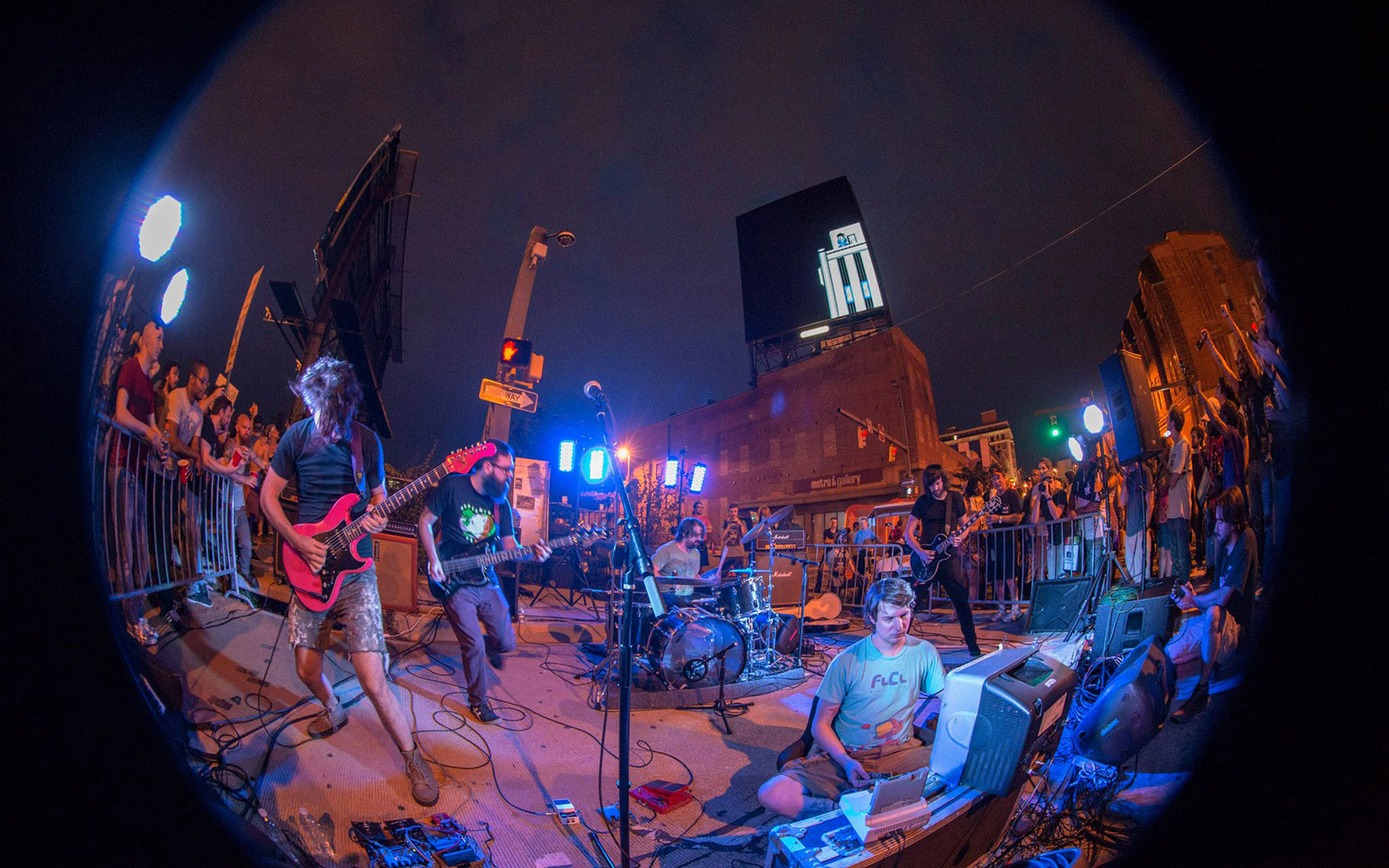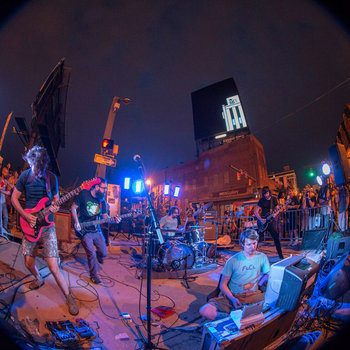
It all started nearly 20 years ago, in the middle of an NES marathon—because, of course, it did. Guitarist Bryant Williamson was hanging out, playing Contra with the gang, when one of his friends jokingly suggested learning its legendary soundtrack and performing it as a rock band. (The project’s tentative name, naturally, was Contraband.) Inspired, the axeman took it one step further and called up his pal Noah McCarthy, a gaming whiz trained in the art of speed-running: basically, an Olympic sprint, except you’re trying to beat a video game as fast as possible. “Bryant called me at like 2 or 3 a.m., and was like, ‘Hey, you want to play Contra?'” McCarthy told Engdadget in 2018. “I was like, ‘All right, yeah, sure,’ and went back to bed. And then I learned Contra, and we started playing it.”


With “Player One” secured (no, really, that’s McCarthy’s official title), the rest of Bit Brigade quickly fell into place: lead guitarist Williamson, rhythm guitarist Jace Bartet (who has since parted ways with the band, replaced by Taylor Washington) drummer Mike Albanese, and bassist Luke Fields. And so Bit Brigade, the world’s first speed-running rock band was born. To date, they’ve taken on a host of classic NES titles ranging from The Legend of Zelda, Metroid, and Mega Man to Ducktales and Batman, with more on the way.
Sounds like a pretty small niche, right? But therein lay the biggest misconception regarding Bit Brigade’s raison d’etre, and their overall appeal. The nine albums comprising their discography are technically tribute LPs, but they’re a jam band first and foremost. At least that’s the impression I got last March when I saw them at Brooklyn’s Saint Vitus, performing a double-header of Ducktales and Mega Man III; McCarthy’s onscreen action diligently mirrored by his bandmates in the form of interlocking fretwork and head-spinning percussion. Much like the Grateful Dead, their road-bound existence and countercultural ties make for a sturdy business model: Bit Brigade’s club dates sell out regularly in advance, and their appearances at high-profile gaming conferences like GDQ are famous for sparking transcendent, room-shaking crowd singalongs. “I accidentally made a job out of playing video game music on the bass guitar,” Fields says.
The way Fields sees it, there are two types of people who come to see Bit Brigade: gamers, and mathcore nerds. The Venn diagram makes sense, considering Bit Brigade’s members came up playing in mathcore bands, and the project’s inherent nostalgic appeal. But it also speaks to shared sensibilities; a mutual appreciation for melodic and rhythmic complexity. “The complicated nature of the limited track arrangements that you have for earlier video game music kind of informed that early 2000s wave of math rock kids, I think, [who were] playing stuff that was very melodically dense and complicated, and somewhat repetitive, too,” he says. “That’s the kind of music we grew up on as kids in the ‘80s and ‘90s: hearing the Ninja Gaiden soundtrack looped over and over again while we were absolutely getting our asses kicked by the very, very difficult stages.”
It took a lot of trial and error to get the spectacle up and running. The band originally went for a DIY setup, hooking a TV up to a projector, dorm-room style. But the large crowds quickly rendered that approach impossible: one stumble or shove and the TV could come crashing down, taking the game and the whole show along with it. (Fields recalls a time when McCarthy had to pause the game to prevent the television set from falling on him; when he unpaused, the game remained frozen) The aging analog components (cables, power supplies, controllers) require a lot of maintenance as well. The band has since made adjustments to mitigate these outliers: all of their game files live on a pre-loaded digital console, eliminating the risk of aberrations due to dusty cartridges, corroded metal, and so on.
“We try and protect everything in its own little case so it doesn’t get messed up,” says Fields. “We do our best to make sure that [technology] is not a point of failure, but always in the back of your mind, especially when it’s a festival show or a big convention. And you’re like, well, that’s 3000 people, I sure hope that the Nintendo doesn’t break because there’s nothing we can do about that.”
Bit Brigade’s business model might be predicated on fun and games, but without a stringent curatorial process, their traveling arcade could easily collapse under its weight. To that end, they only consider titles that meet four criteria: it must be an NES title, feature enjoyable gameplay, have a kick-ass soundtrack, and accommodate a “safe” speedrun experience McCarthy can replicate consistently before a live audience on a nightly basis. (“If Noah is going to be worrying every day, every single show, about whether or not he’s going to be able to pull off during the run, that’s not worth it,” Fields says).
Take the time they took on Castlevania 3: one of the most beloved, and infuriatingly tricky, NES games of all time. “We only did it twice because it was too hard,” Fields says. “None of us who were playing instruments were having fun because it was just shredding us, and then there are multiple parts in the run where, if [McCarthy] accidentally picked up this wrong item, it ruined his whole plan for the rest of the game. Thankfully, it never really happened, but man, oh man, it came close both times we played…oof, that just wasn’t fun.”
The adaptation process also entails unique challenges: translating the source material at hyperspeed and navigating a labyrinth of instrumental and structural contradictions. Fields, a self-taught musician, likens the process of reconciling the two mediums to trekking through the uncanny valley: “Especially if you’re not making any concessions for pitch or key, and just trying to do it exactly as it exists in the game, which is typically what we’re trying to do unless we absolutely can’t. It’s just like, ‘Well, I would have never written it that way. That’s not how you play the guitar; this was never meant to be played on a bass.” But I have to—so here we go.”
With Bit Brigade’s 20th anniversary on the horizon, the band has started to plot their next moves, although they’re keeping specifics close to their chest. “At some point, we’re going to have to graduate to a different system, whether that’s playing other games from a different company system or just going up from 8- to 16-bit,” he vows. “I can’t say what we would play, but it’s definitely an eventuality because it’s a finite pool we’re drilling source material from. There’s not exactly a lot of new stuff coming up for the NES, so it’s time for us to start thinking about what will happen next—and we are thinking about it. It’s going to rock everybody’s mind.”







